Maintaining Indoor Plants
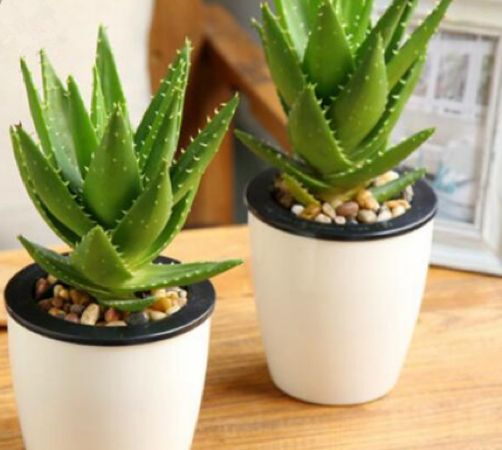
By Teresa Ibiam
Imagine you could be indoors and enjoy nature! Well you actually can….in a way. Indoor plants will make your space look alive and feel fresh.
Apart from that, they’ve been scientifically proven to better human health as they improve the air quality of our interior spaces. These indoor plants detoxify our indoor air so we get to breathe “fresh” air in the comfort of our interior spaces. How cool is that right! Psychologists even say that they’re mood boosters and stress and anxiety relievers.
The good news is that a lot of these plants are low maintenance and don’t need to be doted on. In fact, some of them can do with minimal light.
There are variety of plants with their different functions but we’ll be highlighting a couple of them that thrive in our part of the world (Nigeria), their benefits and how to groom them.
Shall we begin?
- Aloe Vera
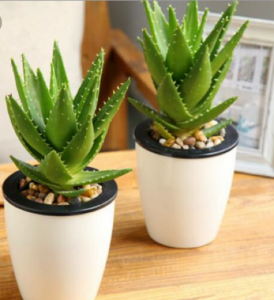
The aloe vera plant is very popular in Nigeria. It is inculcated in a lot of health and hair regimens. Wouldn’t it be nice to have your own supply of your aloe vera? Apart from its healing powers on skin, it is known to be a major air cleaner. It removes benzene and formaldehyde from our air.
It doesn’t require frequent watering and it is best kept by a window to receive indirect sunlight. It thrives in temperatures between 16-27C (so room temperature).
- Golden Palm
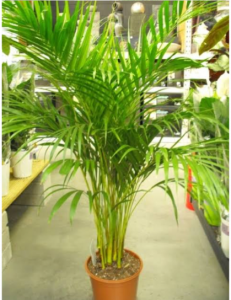
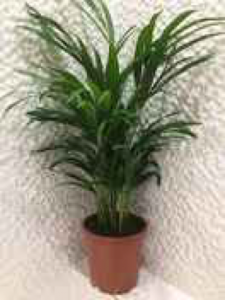
Also known as bamboo palm or areca palm, it is said by a NASA study to be part of the top 10 most effective plants at removing Volatile Organic Compounds (VOCs) from indoor air. The Golden palm has feathering, arching fronds and removes formaldehyde and benzene from the air. In interior spaces, it can grow up to 6-7ft tall.
Large pots should be used to grow the golden palm plant and it should be groomed in a part-shaded place for the first few weeks before being moved to a brighter position with filtered light. It is best places in entrance halls and corners. Pruning damages the plant so if it grows too tall for your space, it is better to replace with a younger plant.
- Snake Plant
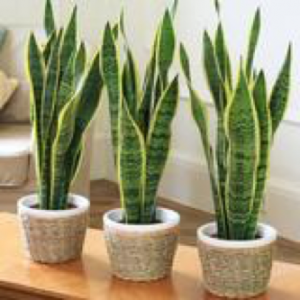
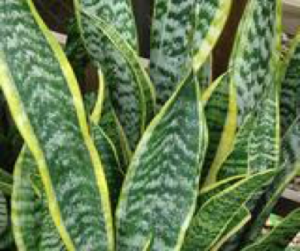
Also known as Mother-in Law’s tongue, this plant can survive long periods without being watered. It has bold and clutter freelines and it is a very beautiful green plant.
Although it does not require frequent watering, it should be watered deeply when it is watered.
The snake plant removes VOCs like formaldehyde, benzene, xylene, trichloroethylene and toluene.
- Peace Lily
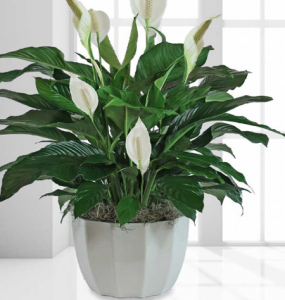
Another beautiful indoor bloomer with its pretty white flowers. The Peace lily is very easy to propagate and will tolerate stuffy indoor conditions. It requires just a liitle amount of water and light to thrive and some species may emit a subtle pleasing fragrance.
- Dieffenbachia
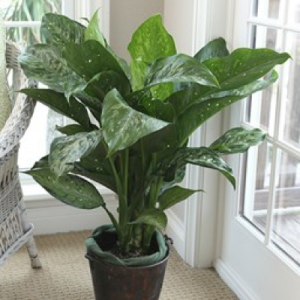
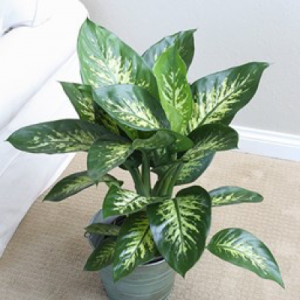
A mouthful for a plant name right? It can also be called ‘Dumbcane’ plant. The rumours that it can be poisonous are untrue. Yes some individuals may be allergic to the plant but it is a harmless indoor plant that purifies our air of xylene and toluene VOCs. It doesn’t require frequent watering but deep watering.
Dieffenbachia is a tropical houseplant so it thrives in a relatively warm , humid spot with a lot of light but it can be tolerative of low-light spots too. Brown tips on leaves will suggest very dry air.
- Weeping Fig
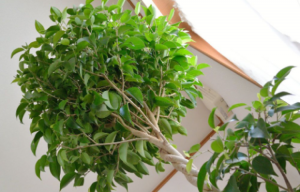
This indoor plant is also known as ‘ficus benjamina’ and it is a perfect houseplant for the Nigeria climate and it is low-maintenance but it looks its best when grown in bright indirect light. It removes formaldehyde, xylene and toluene from the air. The weeping fig does not do very well under cold air so do not place it close to an air conditioner.
- Lady Palm
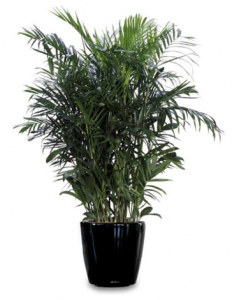
The Lady Palm grows in multi stemmed clumps and has glossy broad leaves divided into ribbed segments. It is a tropical plant and will need a lot of moisture and light to thrive.
It removes formaldehyde and ammonia from the air.
All these plants are totally harmless, not a task to maintain and very affordable. Introduce indoor plants to your homes and offices and see the difference.
Thanks for reading!




